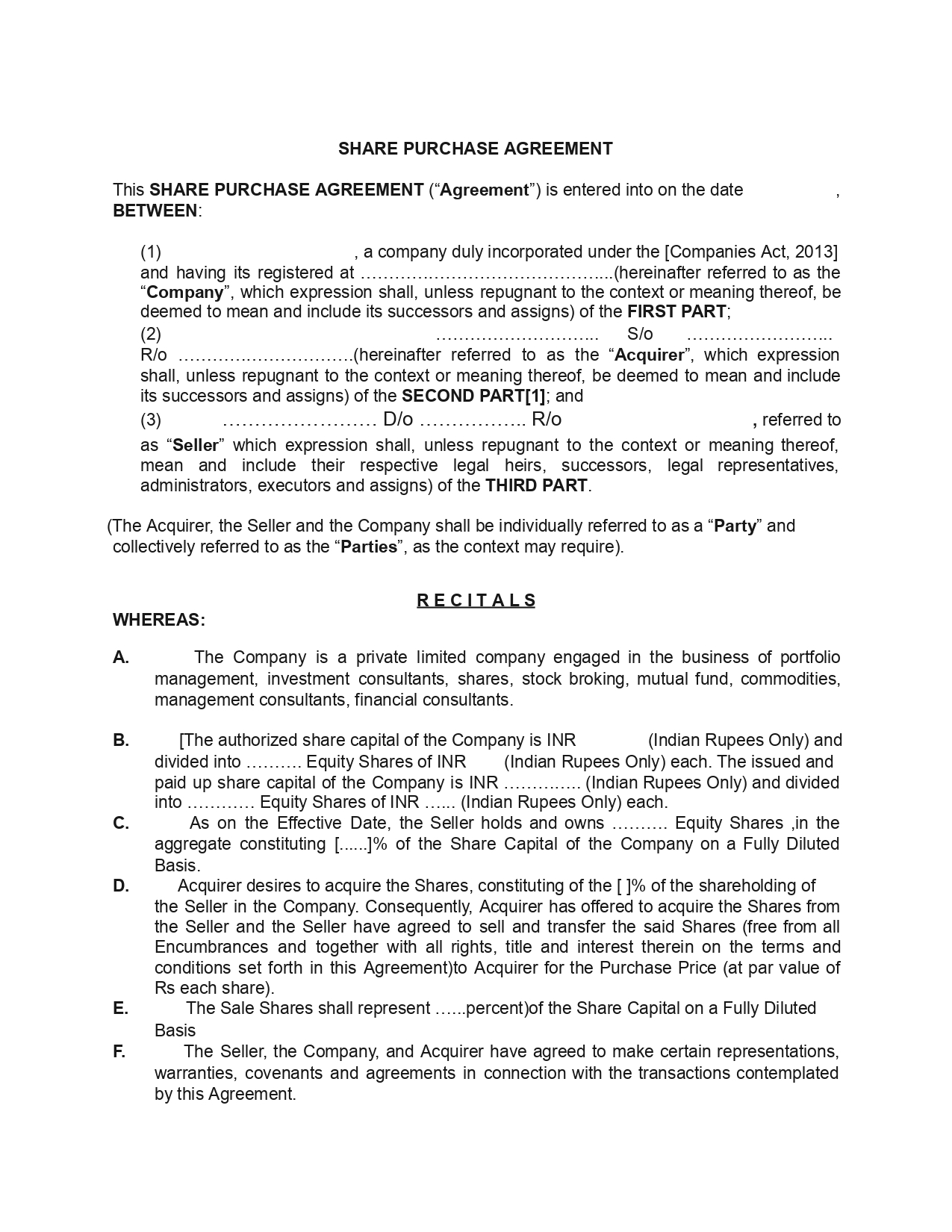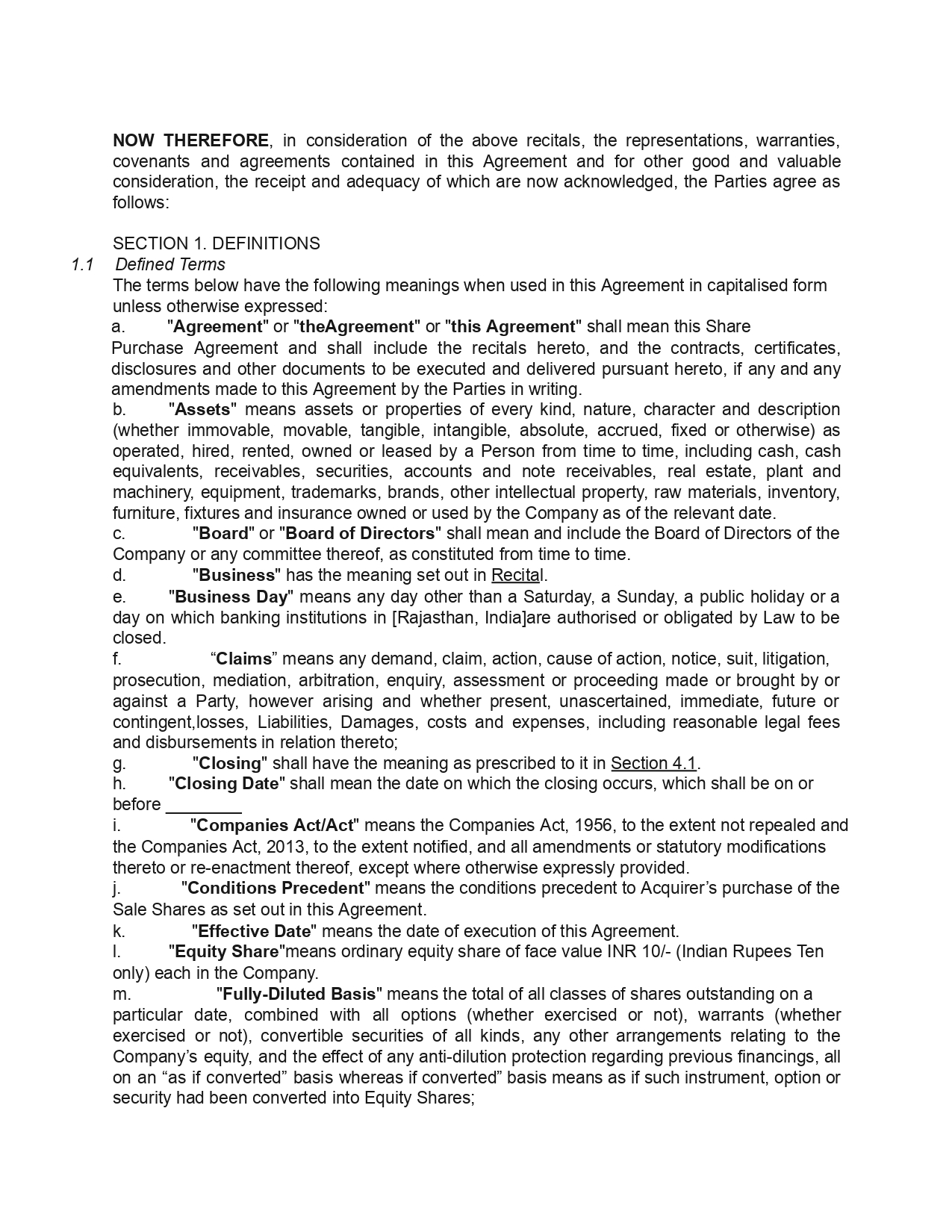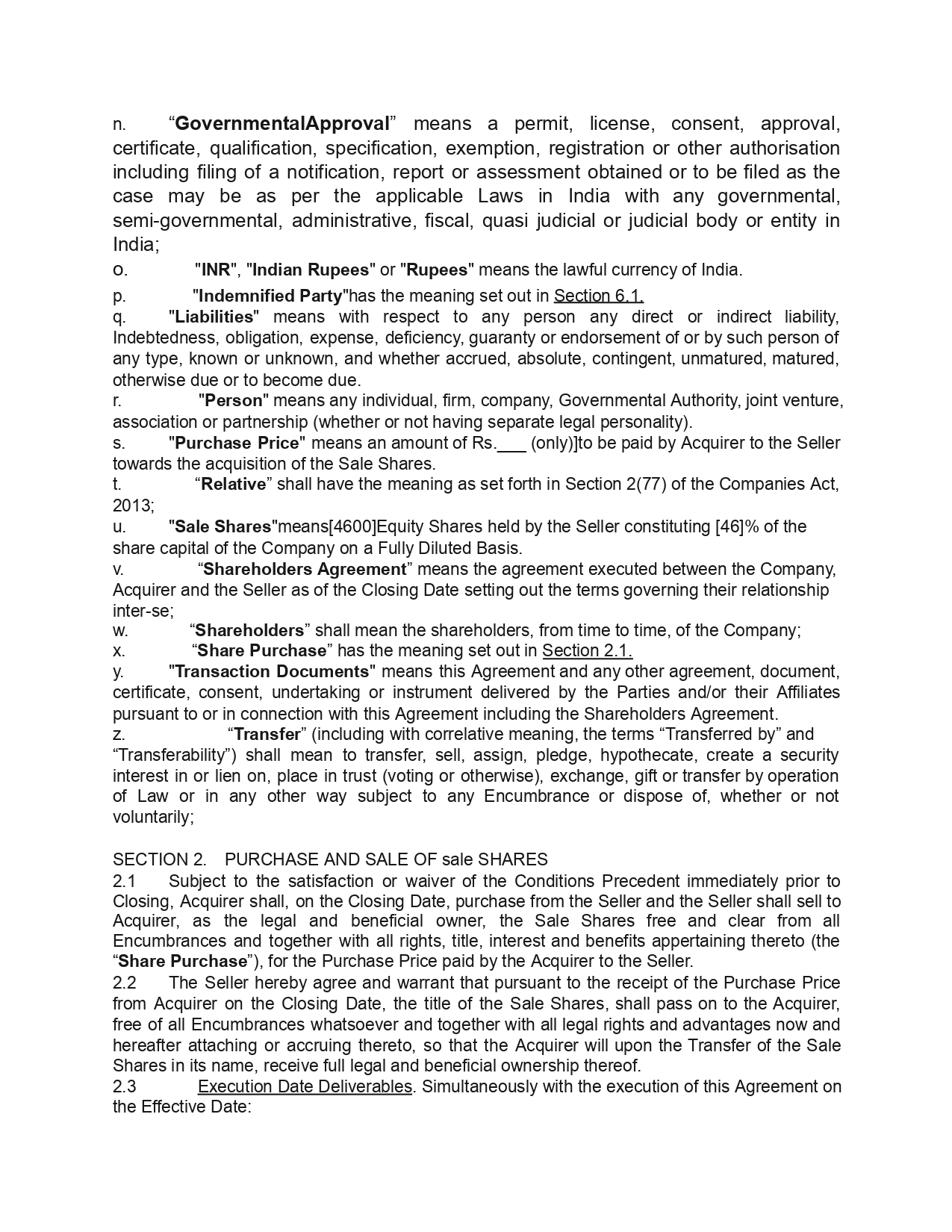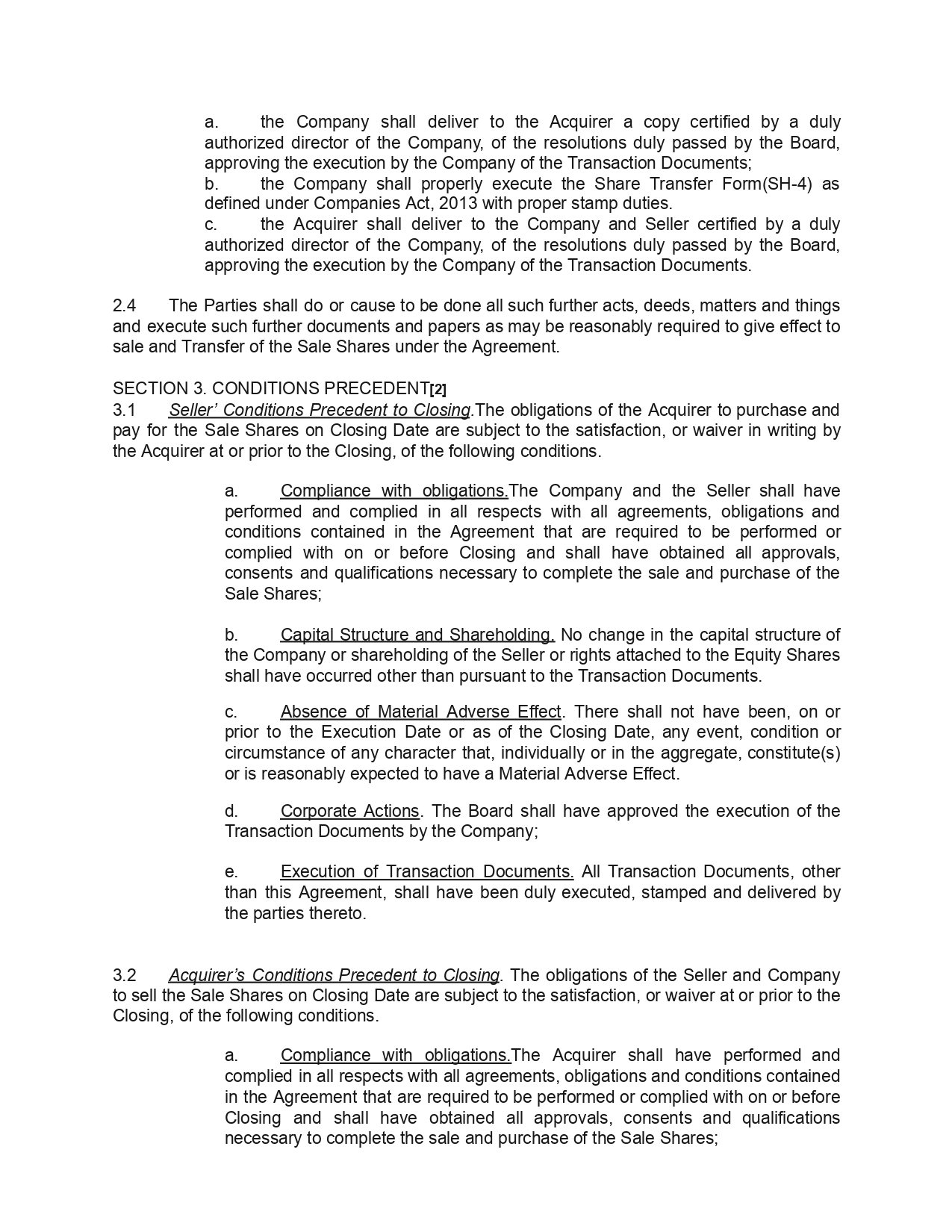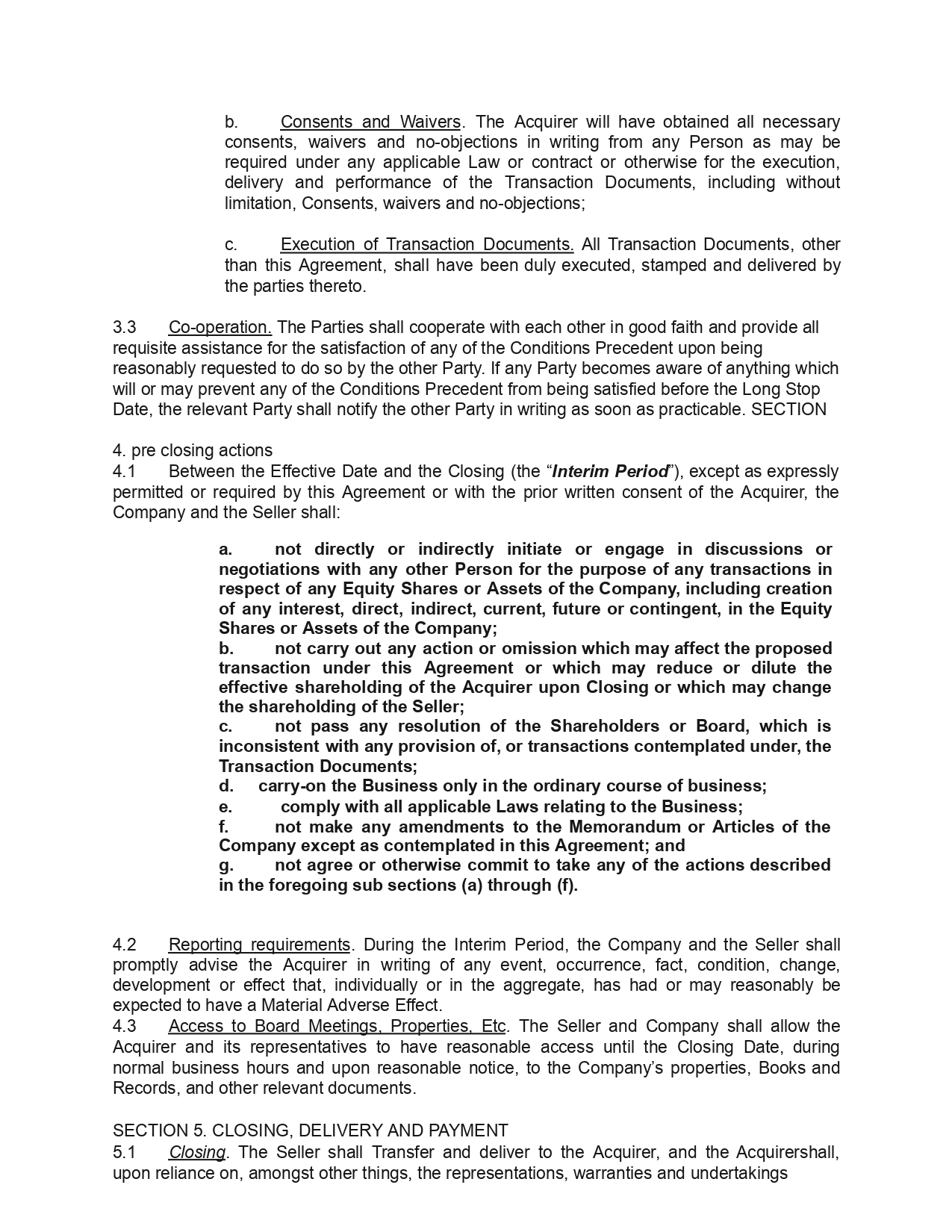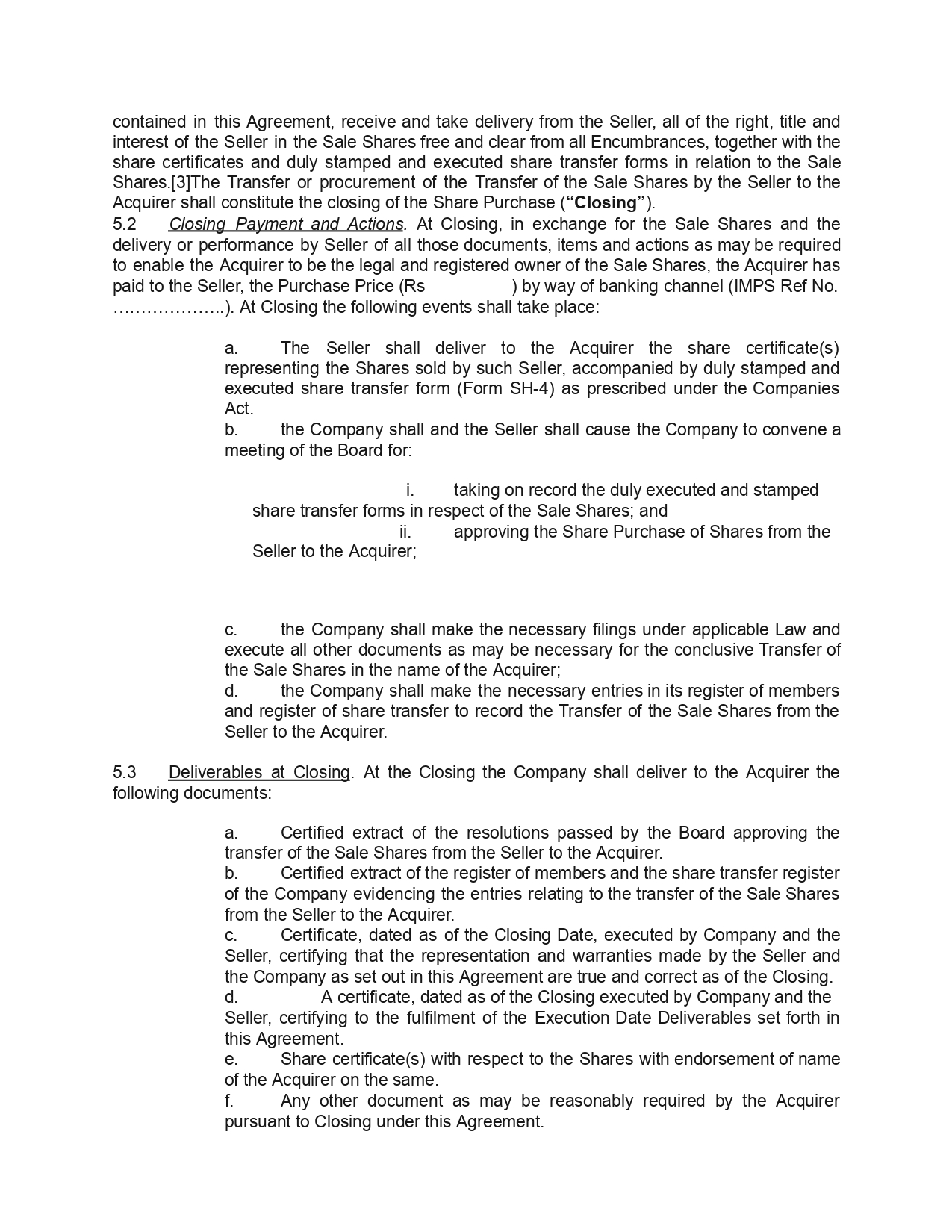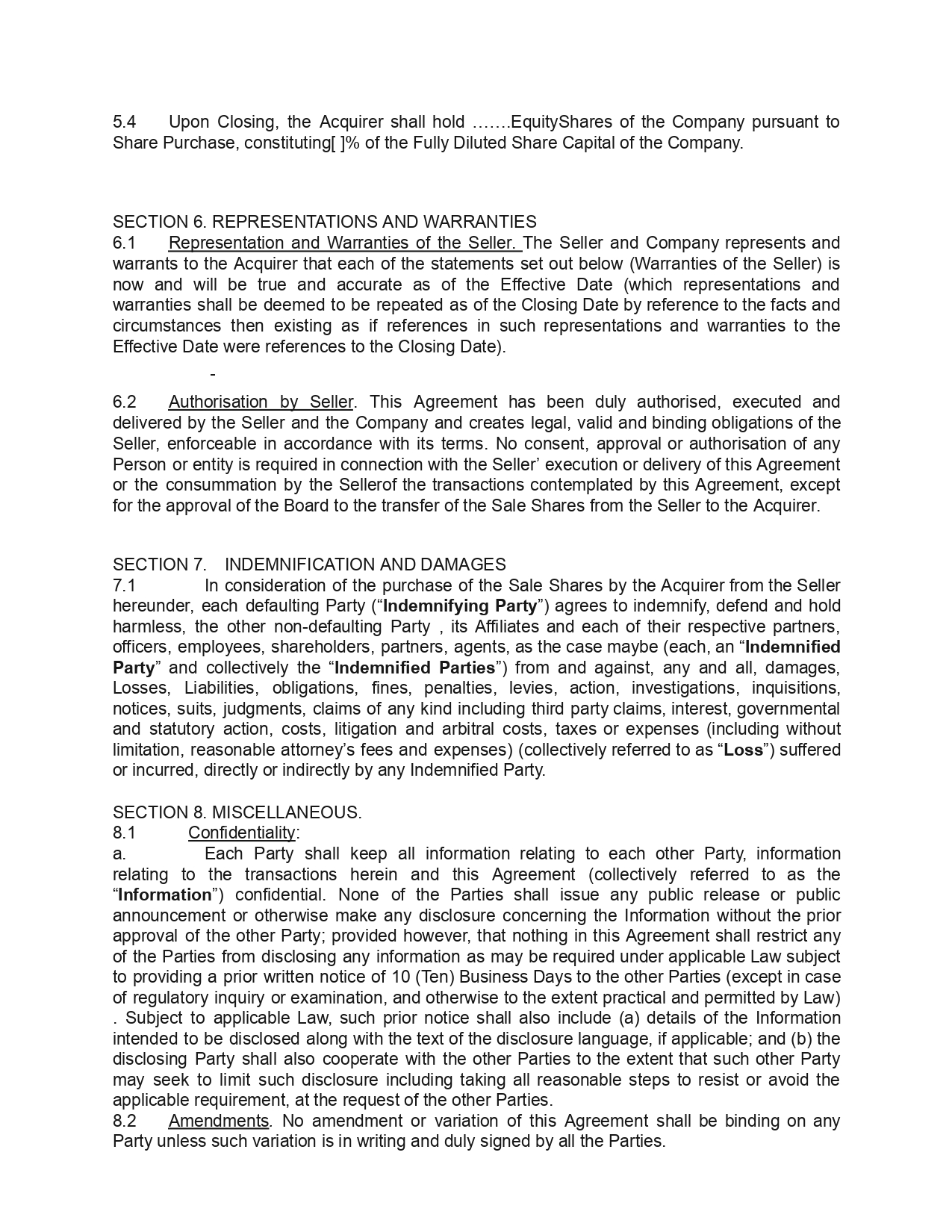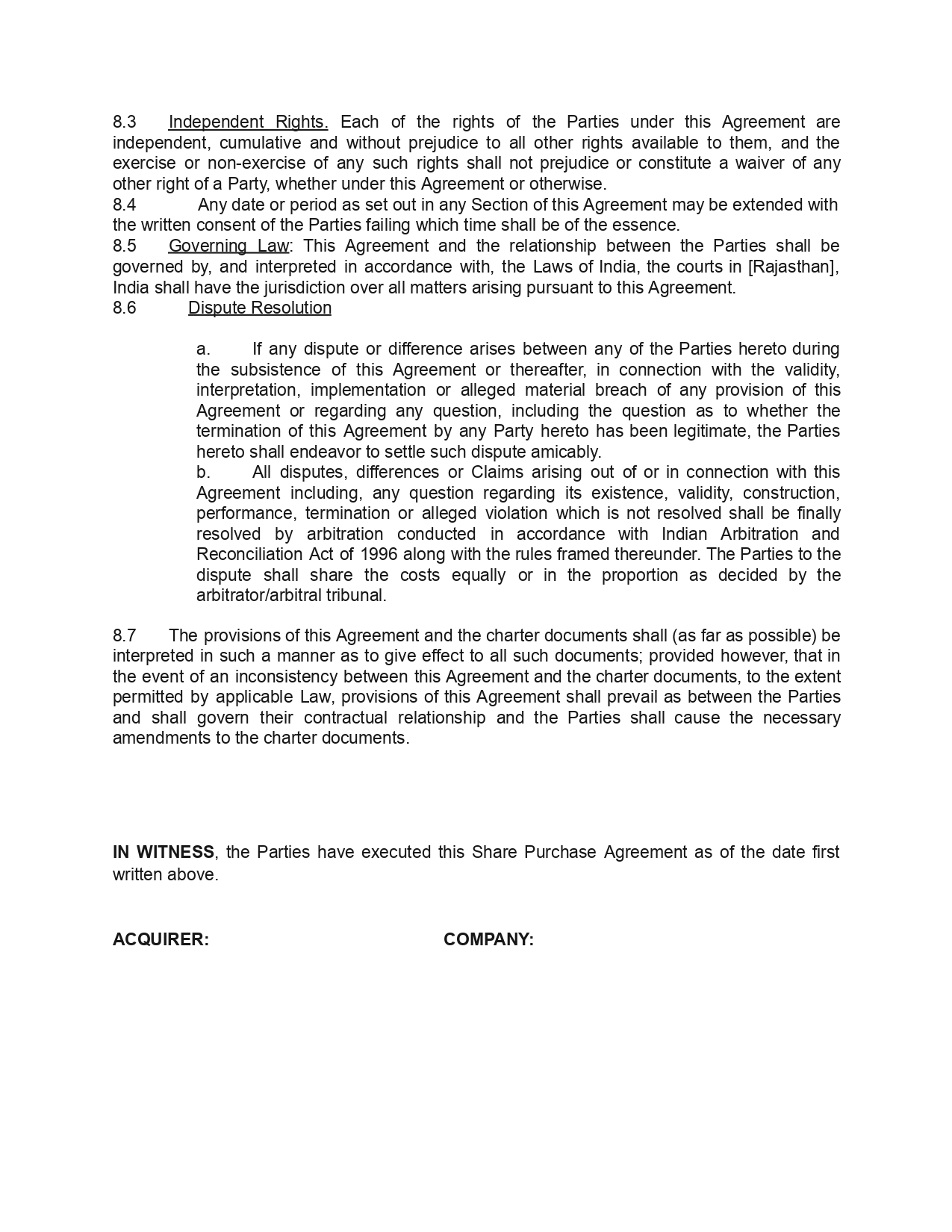A Share Purchase Agreement (SPA) is a legally binding contract used when buying or selling shares of a company. It clearly outlines the obligations and expectations of each party.
The SPA typically covers:
- The number of shares being sold and the price at which they are being sold.
- Payment terms, such as whether the payment will be made in one lump sum or in installments.
- Conditions that need to be fulfilled before the deal is closed (known as "conditions precedent").
- Representations and warranties from both parties about the company, its financial health, and legal status.
- The closing process outlines how the shares will be transferred and when the deal will be finalized.
By signing the SPA, both the buyer and the seller are agreeing to the terms laid out in the agreement, which protects both sides and ensures a smooth and lawful transaction. It helps avoid any misunderstandings or disputes after the deal is made, as everything is documented in detail.
Why Do You Need a Share Purchase Agreement?
A Share Purchase Agreement is crucial for several reasons:
- Protects Both Parties: It clearly defines the rights and responsibilities of both the buyer and the seller.
- Prevents Misunderstandings: By outlining all terms in detail, it reduces the chances of confusion or disputes.
- Provides Legal Protection: If a dispute arises, the SPA provides a legal framework to resolve it.
- Ensures a Safe Transaction: Without an SPA, a share transfer can be risky, leaving both parties vulnerable.
- Guarantees Transparency: It ensures that the transfer of ownership is clear and lawful.
Ultimately, a well-drafted SPA transforms a potentially risky transaction into a secure, transparent, and legally enforceable process.
The Key Laws That Govern SPAs in India
Several important Indian la Indian Contract Act, 1872: ws govern Share Purchase Agreements (SPAs), ensuring compliance and enforceability:
- Indian Contract Act, 1872: This is the foundation of contract law in India. It outlines general principles of contracts, including formation, validity, and enforceability. SPAs are governed under this Act, as it defines how agreements are legally binding.
- Companies Act, 2013: The Companies Act provides the framework for corporate governance and share transfers in India. It sets out the procedures for transferring shares, issuing new shares, and managing company ownership. This law ensures that share transactions comply with corporate regulations.
- Specific Relief Act, 1963: This Act deals with remedies for breaches of contract. If either party fails to meet the terms of the SPA, the Specific Relief Act allows the affected party to seek specific performance or other legal remedies. It protects the interests of both the buyer and the seller in case of a breach.
- FEMA governs foreign exchange and foreign investment transactions in India. If the SPA involves foreign buyers or sellers, FEMA outlines the conditions and regulations for cross-border transactions, ensuring compliance with foreign investment rules. Foreign Exchange Management Act (FEMA), 1999:

